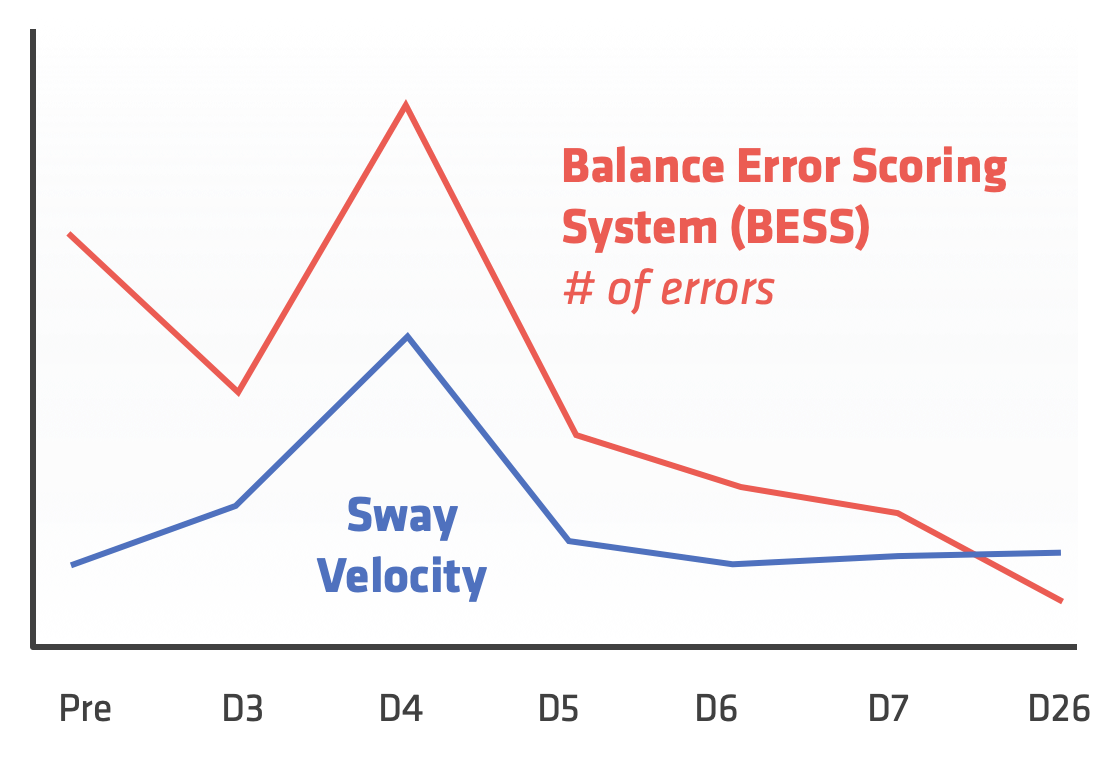Learn about how the Balance Scan provides a more objective measure of balance than many clinically used balance screens.

Concussion testing and diagnosis is currently a hot topic, and rightfully so. It is important to understand that any concussion testing protocol, whether to diagnose a concussion or clear an individual to return to activity post-concussion, will include a battery of different tests. The SCAT-5 protocol is a commonly used battery of tests including a (1) on-field evaluation, (2) symptom evaluation, (3) cognitive screen, and (4) a neurological screen which includes a balance test, the mBESS test.
The first step in utilizing any assessment is to validate that assessment to the current gold standard test. To date, multiple research studies have now been published validating the Balance Scan alongside currently utilized clinical concussion tests. The Balance Error Scoring System (BESS) is utilized frequently for baseline concussion testing and, in practice, is actually very similar to the Balance Scan.
However, the accuracy of subjective balance tests can be questionable. Specifically, with the BESS test, the inter-rater reliability and sensitivity have been a cause for concern with practitioners and researchers alike. Independent research indicates that the Balance Scan may actually be better suited to detect subtle differences in changes and overcomes the limitations of conventional clinical evaluations. In turn, the Balance Scan may be utilized as a neurological screen in place of or in adjunct to other commonly used assessments like the mBESS. Many clinicians are required to, and should, utilize the specific regulated concussion protocols maintained by their organization.
All of our published research can be found in the Publications section of our website.
